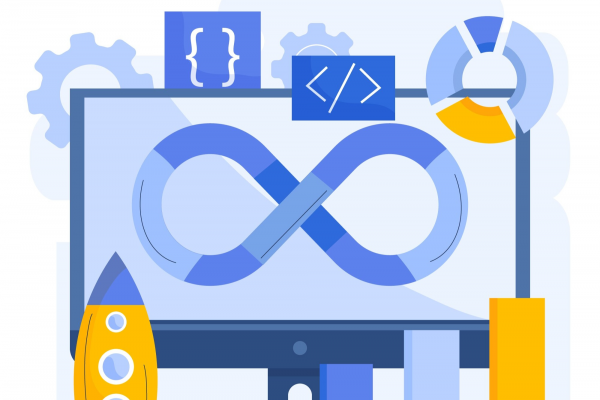Machine learning (ML) has rapidly evolved as a cornerstone of modern technology, enabling systems to analyze data, identify patterns, and make predictions without explicit programming. Choosing the right machine learning framework is critical to effectively deploying ML solutions in various industries. This blog explores the fundamentals of ML frameworks, highlights key frameworks, and provides guidance on selecting the right one for your needs.
What Are Machine Learning Frameworks?
Machine learning frameworks are libraries or tools that provide pre-built components for developing and deploying ML models. They abstract complex mathematical operations, enabling developers to focus on crafting efficient algorithms and applications. Frameworks typically include tools for data preprocessing, model training, evaluation, and deployment.
Popular Machine Learning Frameworks
- TensorFlow
Created by Google, TensorFlow is one of the most popular frameworks for ML. Its extensive ecosystem supports deep learning, neural networks, and other advanced models. TensorFlow is widely used for its scalability and compatibility with various hardware setups. - PyTorch
Developed by Facebook, PyTorch is known for its dynamic computation graph, making it particularly suitable for research and experimentation. PyTorch has gained immense traction for applications in natural language processing (NLP) and computer vision. - Scikit-learn
Built on Python, Scikit-learn is a powerful library for classical ML algorithms like regression, classification, and clustering. Its simplicity makes it a favorite for beginners and data scientists handling small to medium datasets. - Keras
Keras provides a user-friendly interface to build and train deep learning models. While initially a standalone library, it is now integrated into TensorFlow, offering high-level abstractions for neural network development. - Apache Spark MLlib
MLlib, a component of Apache Spark, is tailored for distributed machine learning on large-scale datasets. It supports a range of algorithms and is ideal for big data analytics.
Key Statistics in Machine Learning
- Adoption Growth: According to Statista, the global AI market, which heavily relies on ML frameworks, is projected to grow by 28.46% CAGR to reach US$826.70bn by 2030, driven by advancements in AI tools and frameworks.
- Framework Usage: A 2018 Statista survey revealed that TensorFlow and Keras dominate the ML framework landscape, with 96.77% and 51.55% usage among developers respectively.
- AI Investments: According to Goldman Sachs, the global investment in AI, including ML technologies, is expected to cross US $1 Trillion in the coming years, reflecting businesses’ increasing reliance on data-driven insights.
How to Choose the Right Framework
- Define Your Use Case
Identify the type of ML problem you aim to solve. For deep learning tasks, frameworks like TensorFlow and PyTorch are ideal, while Scikit-learn is excellent for classical ML algorithms. - Consider Ease of Use
If your team is new to ML, prioritize frameworks with user-friendly interfaces. Keras and Scikit-learn offer simplicity and are beginner-friendly. - Evaluate Scalability
For large datasets and distributed computing, frameworks like Apache Spark MLlib are better suited due to their scalability and integration with big data tools. - Community Support
Choose a framework with strong community backing, ensuring access to tutorials, pre-trained models, and troubleshooting forums. - Integration Needs
Assess how well the framework integrates with your existing tech stack. TensorFlow, for example, works seamlessly with Google Cloud Platform.
Conclusion
Machine learning frameworks are pivotal in simplifying and accelerating the development of ML solutions. By understanding the capabilities and strengths of various frameworks, organizations can select the best-suited tools for their specific needs. Whether it’s TensorFlow for scalability, PyTorch for research, or Scikit-learn for simplicity, the right choice can significantly impact the efficiency and success of your ML projects. Partner with STL Digital to unlock innovative, AI-powered solutions tailored to drive your business transformation.



